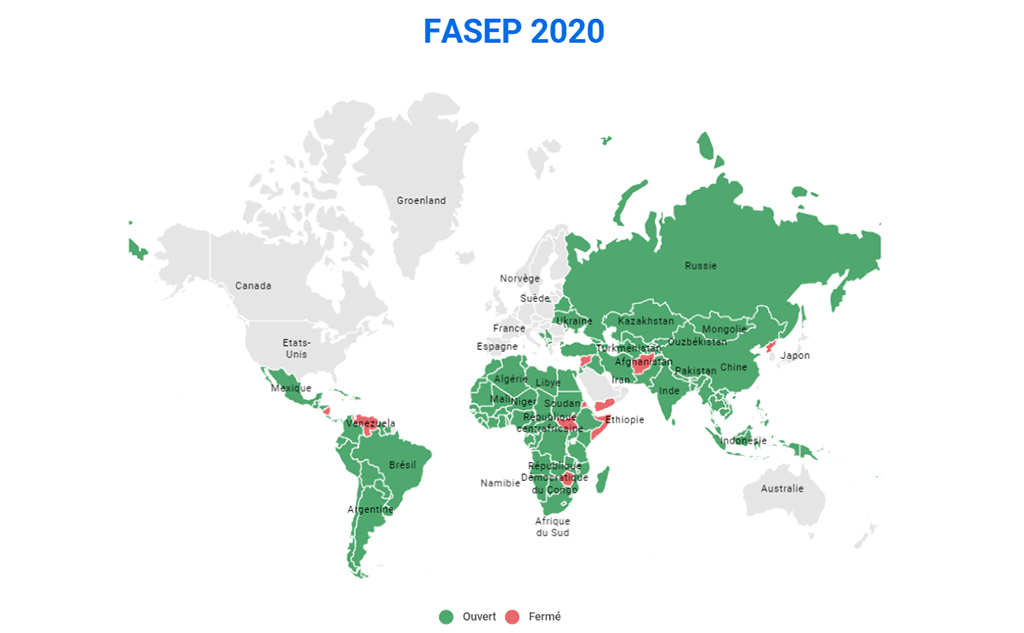The Direction générale du Trésor (Directorate General of the French Treasury, French Ministry for the Economy) is inviting applications from French companies to submit international projects aimed at reducing and recycling waste. This call for tender is part of the FASEP Innovation verte (Green Innovation) strategy. Armed with a budget of €10 M, (maximum of €500,000 per project), the programme will provide financial backing for around twenty projects. The closing date for applications is 1 October.
FASEP (fonds d’études et d’aide au secteur privé – fund for private-sector aid and research) was set-up to finance feasibility studies or demonstrators to assist public authorities in developing countries. It comprises a grant or repayable advance to kick-start projects led by French companies. The aim is then two-fold: to assist developing countries, and to promote exporting by French companies.
FASEP has two categories: FASEP Etudes (Studies) aimed at financing feasibility studies in a pilot sector with a view to implementing an upstream project, and FASEP Innovation verte (Green Innovation), to provide full or partial financing of a demonstrator with the goal of proving technological efficacy (to facilitate replication) and achieving an initial standard. The demonstrator must showcase an innovative technology, process, approach or service.
In both cases (FASEP Studies and FASEP Green Innovation), any type of company can apply although priority will be given to SMEs and start-ups. The amounts available range from €100,000 to €800,000, of which the French share must account for at least 85% with strong leverage in the French sector. For FASEP Green Innovation, a maximum 75% of the funding can be used for equipment (including transport and insurance).
Some example FASEP projects
WMI was involved in a FASEP Study on behalf of EMCALI, a municipal corporation in the Columbian city of Cali. The project focused on optimising the water distribution network and reducing water losses. It went on to secure the tender that was launched by EMCALI to reduce water losses in the city (the 3rd largest city in the country, with 2.5 million inhabitants).
The Mascara Renewable Water start-up received FASEP Green Innovation funding to construct a solar-powered desalination plant in South Africa.
Another example is that of Numtech, who devised a high-resolution air quality monitoring and forecasting system for the Casablanca conurbation. The company was approached by Météo Maroc following a Pollutec Casablanca presentation.
A broad spectrum
The call for projects geared towards “Innovative solutions to reduce and recycle waste” seeks to promote solutions that allow action to be taken upstream to reduce waste generation, or downstream to find solutions for recycling waste and reducing its impact. The intended scope is particularly broad: waste management (reduction at source, collection, sorting, re-use, recycling), the environment (reduction of rainwater pollutants), energy (generating energy from waste, battery recycling), transport (transforming waste into fuels), health (management of potentially infectious waste), agriculture (management of agricultural waste) or digital (digital solutions dedicated to waste management).
This involves, amongst others, alternatives to single-use plastics and non-recyclable materials, solutions to optimise collection logistics or sorting chains, carbon-free collection systems, composting or trapping waste in rainwater networks, nature-based solutions to reduce urban run-off, biogas or SRF (solid recovered fuels) production systems, and devices for reusing or recycling electrical and electronic equipment.
What is the selection process?
The projects will be assessed by representatives from the three ministries concerned (Economy via the Directorate General of the Treasury and the Budget Directorate; Ecological and Solidarity Transition; Europe and Foreign Affairs) and suitably skilled staff from the Agence française du développement (AFD) (French Development Agency) and Ademe (French Environment and Energy Management Agency). The selection process is based on five key criteria: the project’s leverage effect, local ownership, innovation (including technological maturity), export support, environmental impact, biodiversity, and climate (including the search for carbon neutrality).
Projects can be submitted up to 1 October 2020. Applications will be processed up to mid-November. Successful applicants from initial pre-selection will be invited to a project pitching session for final assessment. Some twenty projects will be selected, with formal notification of the winner scheduled to take place at Pollutec, Lyon, between 1 and 4 December.

Other recent FASEP projects
In 2019, the DGT (Directorate General of the Treasury) launched a call for projects geared to “Innovative solutions for sustainable cities in Africa”.
Of the 226 applications received, 21 were selected covering a wide range of sustainable city issues: water (leakage management, treatment, AI in networks), waste [WEEE (Waste Electrical and Electronic Equipment), human waste], REn (solar farms, hydroelectric micro-turbines), storage, climate change adaptation (rainfall monitoring rainfall, flood risk management, mosquito control solutions), smart grids, street lighting, energy efficiency, autonomy, electrically-powered transportation (city bikes), etc.
These 21 projects involve 12 countries from right across the continent: South Africa, Burkina Faso, Cameroon, Ivory Coast, Egypt, Guinea, Kenya, Mali, Morocco, Senegal, Togo and Tunisia.
*Learn more at: https://www.tresor.economie.gouv.fr/Articles/2020/04/24/appel-a-projets-solutions-innovantes-pour-la-reduction-et-la-valorisation-des-dechets